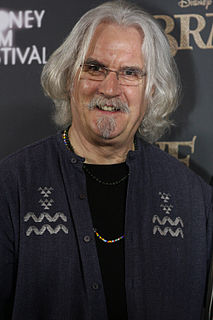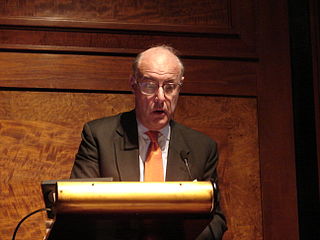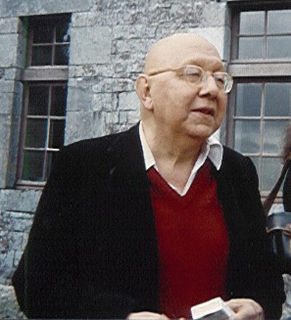A Quote by Ian Hacking
As a political metaphor, a revolution could, in that sense, mean only a return to better times, or to the true constitution: a ridding of excess or usurpers.
Quote Topics
Related Quotes
The word 'revolution' first brings to mind violent upheavals in the state, but ideas of revolution in science, and of political revolution, are almost coeval. The word once meant only a revolving, a circular return to an origin, as when we speak of revolutions per minute or the revolution of the planets about the sun.
Both for the production on a mass scale of this communist consciousness, and for the success of the cause itself, the alteration of men on a mass scale is necessary, an alteration which can only take place in a practical movement, a revolution; this revolution is necessary, therefore, not only because the ruling class cannot be overthrown in any other way, but also because the class overthrowing it can only in a revolution succeed in ridding itself of all the muck of ages and become fitted to found society anew.
In a very real sense, the Constitution is our compact with history . . . [but] the Constitution can maintain that compact and serve as the lodestar of our political system only if its terms are binding on us. To the extent we depart from the document's language and rely instead on generalities that we see written between the lines, we rob the Constitution of its binding force and give free reign to the fashions and passions of the day.
As to the history of the revolution, my ideas may be peculiar, perhaps singular. What do we mean by the revolution? The war? That was no part of the revolution; it was only an effect and consequence of it. The revolution was in the minds of the people, and this was effected from 1760 to 1775, in the course of fifteen years, before a drop of blood was shed at Lexington.
It’s a revolution. But it’s the sort of revolution that no one will notice. It might get a little shadier. Buildings might function better. You might have less money to earn because your food is all around you and you don’t have any energy costs. Giant amounts of money might be freed up in society so that we can provide for ourselves better. So it’s a revolution. But permaculture is anti-political. There is no room for politicians or administrators or priests. And there are no laws either. The only ethics we obey are: care of the earth, care of people, and reinvestment in those ends.
I think frustration unfortunately, reflects a real breakdown in the political parties themselves, which is fascinating because our constitution did not anticipate political parties. They're not even written in the Constitution, there's no guidelines. When we look at the arcane processes of delegate selection in the primaries and caucuses, it's not in the Constitution. This is all created post Constitution. And yet I think we're in the middle of tensions between and within the political parties. They're not functioning that well.







































